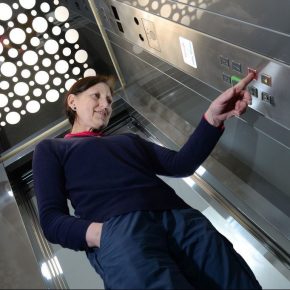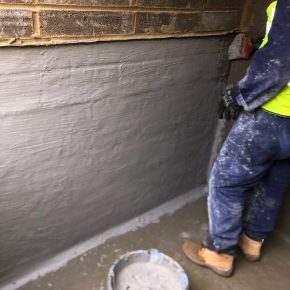
London demonstrates commitment to Zero Carbon standard
The Zero Carbon standard, as outlined in the London Plan, is due to come into effect for all new residential developments in the city on 1st October 2016. Beverley Rosso, Senior Sustainability Consultant at Stroma Tech, finds out more…
Whilst figures from the Office of National Statistics are beginning to show Brexit’s impact on Britain’s economy and employment levels, its effect on the country’s energy performance policy is yet to be seen.
Despite uncertainty, Zero Carbon incentives are urging the UK towards an improved standard of energy efficiency. The Climate Change Act of 2008, which stipulates that the UK’s net carbon amount for 2050 must be at least 80% lower than the 1990 baseline, is likely to remain unchanged.
London’s Zero Carbon commitments
Over the last ten years, various auditing and incentivised savings schemes have been introduced to encourage energy savings. Building Regulations Approved Document Part L has undergone a number of changes to ensure the reduction of CO2 emissions in Britain’s built environment. These developments have contributed towards the overarching 2050 goal.
Since 2010, London building developments have strived to reach ambitious CO2 targets. From 1st October this year, all major new-build residential developments must achieve ‘zero carbon’; the same will be expected of non-residential builds in 2019. Until then, they must achieve a 35% reduction in CO2 emissions.
The Supplementary Planning Guidance (SPG) defines the required zero carbon standard to achieving at least a 35% reduction in CO2 emissions below the 2013 Part L compliant baseline.
Residual regulated CO2 emissions to 100% are to then be off-set via a cash-in-lieu payment to the relevant Borough in order for them to secure delivery of CO2 savings elsewhere.
Carbon offset payments
The carbon offset payment is made to the Borough during the development and calculated from the quantity of CO2 (regulated tonnes) for a 30-year period.
The Housing SPG refers to an indicative rate of £60 per tonne for 30 years, payable to each Borough. Each London Borough is tasked with reviewing this figure and establishing their spending infrastructure. Based on research by individual councils, the rate currently varies from £46 per tonne to £104 per tonne: early investigations are critical to ensure an accurate cost estimate is known while developing the energy strategy.
The expectation remains that energy strategies will be developed in accordance with the established energy hierarchy: ‘be lean, be clean, be green.’ Fabric standards should be maximised, while ensuring necessary overheating mitigation measures and adequate daylighting levels are upheld.
Renewable technologies and Combined Heat and Power (CHP) units should be used, but only when appropriate.
Any carbon savings associated with the offset fund should be spent on energy and retrofitting projects within the respective Borough, while being mindful of any conflict with the Community Infrastructure Levy (CIL) Regulations.
The Borough must spend the funds on something that provides added value; a measure that would be unlikely to be funded through other means. These offsetting measures will be secured through S106 agreements and potentially pooled to provide quantifiable energy efficiency measures on a greater scale.
If limitations prevent certain developments from achieving on-site CO2 targets, all feasible measures must be incorporated; consultation with the Borough will be required when a shortfall is shown to exist.
Contact:
Stroma
4 Pioneer Way,
Castleford
West Yorkshire
WF10 5QU
0845 621 11 11
Visit Supplier's page
Latest news

31st March 2025
Stannah Lifts urges lift owners to prepare for the PSTN switch over
Stannah Lifts, a leading provider of lift solutions, is calling on businesses and facility managers to act now and upgrade their lift communications systems to ensure they are ready for the UK’s new high-speed, GSM digital network.
Posted in Accessibility, Articles, Building Industry News, Building Products & Structures, Building Regulations & Accreditations, Building Services, Facility Management & Building Services, Health & Safety, Information Technology, Interiors, Lifts, Restoration & Refurbishment, Retrofit & Renovation
31st March 2025
Delta: Lift Pit Waterproofing - Type A solutions
Delta Membranes has recently worked on a project whereby the scope was to provide a waterproofing solution to a newly constructed lift pit for a four-storey residential block.
Posted in Articles, Building Industry News, Building Products & Structures, Building Services, Case Studies, Concrete, Cement, Admixtures, Damp & Waterproofing, Facility Management & Building Services, Restoration & Refurbishment, Retrofit & Renovation
31st March 2025
HMG Paints renew partnership with Belle Vue Aces Speedway
HMG Paints has renewed its partnership with Belle Vue Aces for the 2025 season. This year marks a particularly exciting chapter for Belle Vue Speedway, as the club and National Speedway Stadium will host an electrifying double-header of the FIM Speedway Grand Prix in 2025.
Posted in Articles, Building Industry News, Building Products & Structures, Case Studies, Interiors, Paints, Paints, Coatings & Finishes, Posts, Restoration & Refurbishment, Retrofit & Renovation
31st March 2025
Ideal Heating sponsored CIBSE BPA Engineer of the Year announced
As the sponsor of the Engineer of the Year award at the Chartered Institution of Building Services Engineers (CIBSE) Building Performance Awards, Ideal Heating Commercial was delighted to present the award to Volkan Doda, Head of Design Technologies at Atelier Ten.
Posted in Articles, Awards, Building Associations & Institutes, Building Industry Events, Building Industry News, Building Products & Structures, Building Services, Facility Management & Building Services, Heating Systems, Controls and Management, Heating, Ventilation and Air Conditioning - HVAC, Pipes, Pipes & Fittings, Plumbing, Retrofit & Renovation
 Sign up:
Sign up: